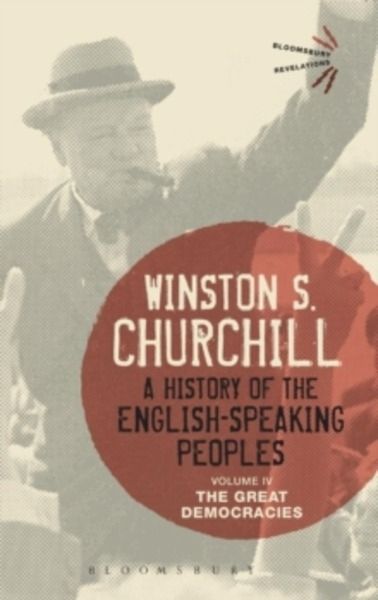A History of the English-Speaking Peoples Volume IV : The Great Democracies

Editorial Bloomsbury Publishing PLC
Fecha de edición enero 2015 · Edición nº 1
Idioma inglés
EAN 9781474223508
264 páginas
Libro
encuadernado en tapa dura
Resumen del libro
"This history will endure; not only because Sir Winston has written it, but also because of its own inherent virtues - its narrative power, its fine judgment of war and politics, of soldiers and statesmen, and even more because it reflects a tradition of what Englishmen in the hey-day of their empire thought and felt about their country's past." The Daily Telegraph Spanning four volumes and many centuries of history, from Caesar's invasion of Britain to the start of World War I, A History of the English-Speaking Peoples stands as one of Winston Churchill's most magnificent literary works. Begun during Churchill's wilderness years' when he was out of government, first published in 1956 after his leadership through the darkest days of World War II had cemented his place in history and completed when Churchill was in his 80s, it remains to this day a compelling and vivid history. The Great Democracies is the fourth and final volume of Churchill's history.
Here, Churchill reaches the modern era. For Britain, this was the high Victorian era of Palmerston, Gladstone and Disraeli, an age of free trade and imperialism as the British spread to Africa, Australia and New Zealand. Meanwhile the fledgling republic in America endured the great crisis of the Civil War to take its first steps on the road to becoming the world superpower that endures to this day.
Biografía del autor
x{0026}lt;span x{0026}lt;span style='font-size:13.3333px;' ?Winston Leonard Spencer Churchill (Blenheim Castle, Oxfordshire, 1874-Londres, 1965), proveniente de una familia aristocrática victoriana, se graduó en el Royal Military College. Tras haber servido en la India, presenció la guerra anglobóer como corresponsal de guerra del periódico Morning Post. En 1900 fue elegido diputado por el Partido Conservador, que abandonó en 1904 para unirse al Partido Liberal. x{0026}lt;/span x{0026}lt;/span x{0026}lt;span x{0026}lt;span style='font-size:13.3333px;' El gran salto en su carrera política se produce en 1940, cuando es elegido primer ministro en sustitución de Neville Chamberlain. Después de perder las elecciones en 1945 contra los laboristas, recuperó la jefatura del Gobierno durante el periodo comprendido entre 1951-1955. Tras dimitir ese año, se dedicó a la pintura y la literatura, campo en el que destacó con obras como Paso a paso: del crepúsculo de la paz al resplandor de la victoria, Sangre, sudor y lágrimas, Los secretos de la guerra, Pensamientos y aventuras y Savrola. x{0026}lt;/span x{0026}lt;/span x{0026}lt;span x{0026}lt;span style='font-size:13.3333px;' En 1953 se le otorgó el premio Nobel de Literatura. x{0026}lt;/span x{0026}lt;/span x{0026}lt;p x{0026}lt;br x{0026}lt;/p x{0026}lt;/span








